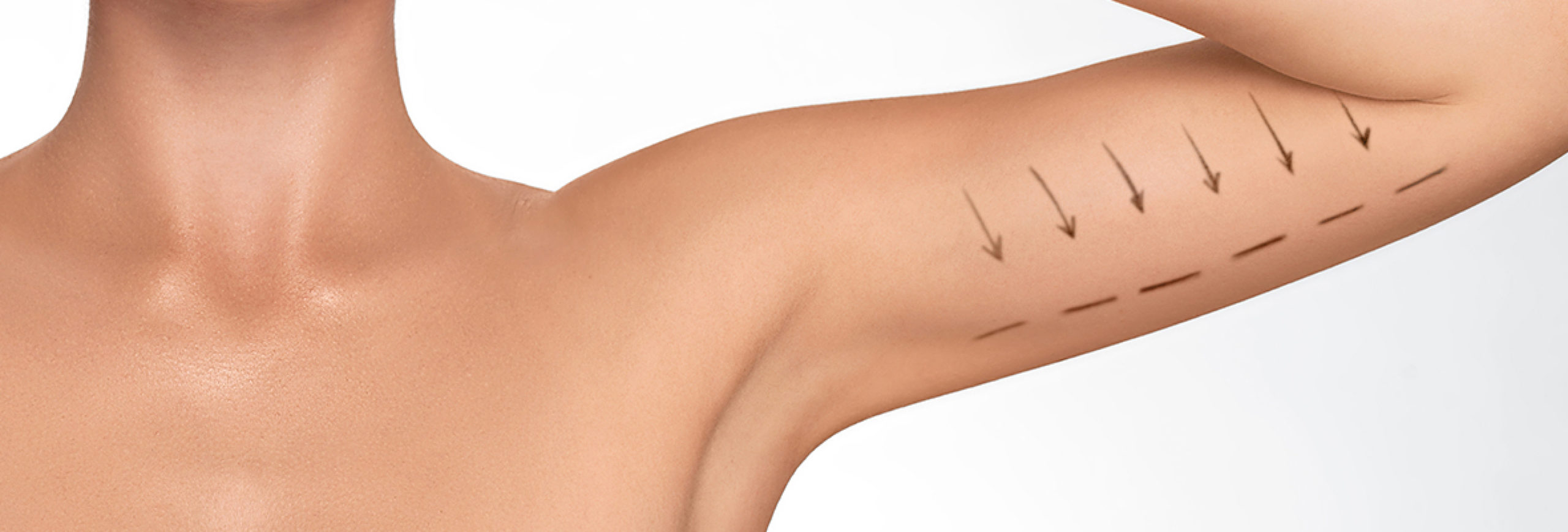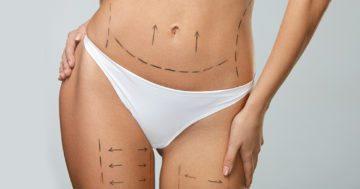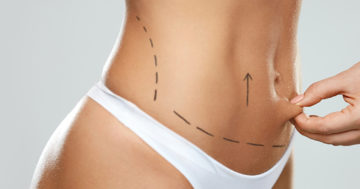Brachiplasty (Arm Lift)
Surgical Procedure
Your surgeon will first mark the area of excess skin. Then after the anaesthetic is administered, incisions are made on the inner and under arm, usually in a zigzag pattern. Skin is usually cut off in an elliptical or triangular shape. Fatty tissue is often suctioned at the same time.
After the loose skin and fat have been removed, the remaining skin is stretched and sutured into place. Occasionally a drain is used to lead excess fluids from the site of incision, allowing the skin better to adhere to the tissue beneath. The incisions are then bandaged.
1 NIGHTS
4 - 5 HOURS
GENERAL ANAESTHESIA
Pre Operative Care
Your surgeon will direct you on preparation for surgery. You will be given instructions on eating and drinking, smoking, and taking or avoiding vitamins, iron tablets and certain medications. If you develop a cold or an infection of any kind, especially a skin infection, your surgery may have to be postponed.
 Patients that suffer from hypertension must inform the surgeon prior to surgery. To eliminate the chance of post op. bleeding
Patients that suffer from hypertension must inform the surgeon prior to surgery. To eliminate the chance of post op. bleeding  You should avoid aspirin and any medication containing aspirin or brufen for two weeks prior to surgery.
You should avoid aspirin and any medication containing aspirin or brufen for two weeks prior to surgery.  Communication with your surgeon is very important. You must clearly discuss your desired look with the surgeon so that he or she can determine with you what can realistically be achieved.
Communication with your surgeon is very important. You must clearly discuss your desired look with the surgeon so that he or she can determine with you what can realistically be achieved.Package Price

Post Operative Care
After surgery your arm(s) will be covered with a compression garment designed to hold them in shape whilst the newly sculpted skin heals to the tissue beneath. You will have sutures, possibly with a drain inserted to help the skin and tissue heal. Some of the sutures will absorb, and some may have to be removed by your during a follow-up visit.
Following the procedure you may feel some discomfort as there may be some swelling, bruising and stiffness.
For young women with out of proportioned arms, recovery should not take more than a day or two. For middle-aged patients wishing to hold back aging, the recovery time is about three or four days. Candidates who have lost a lot of weight and therefore require surgery may need a week or sop before returning to work.
Risks and Complications
Risks are inherent to any surgical procedure. The most common risks are swelling, bruising, bleeding, infection, fluid, numbness, or scarring.
Results
Buttock augmentation patients typically can return to quiet, low-intensity work within a week. Full recovery may take several months.
The most common risk particular to this surgery is pulmonary embolism due to the freeing of fat or blood clots into the bloodstream, however this is very rare.
An arm lift is not recommended for patients who have had a mastectomy. The drainage of fluid from the arm may already be damaged, and further surgery may lead to persistent swelling. Patients who have repeated infections in the armpit, or suffer from excessive sweating, may also not be good candidates for this surgery. For some people, liposuction may be a better way to reduce the thickness of the whole arm.



